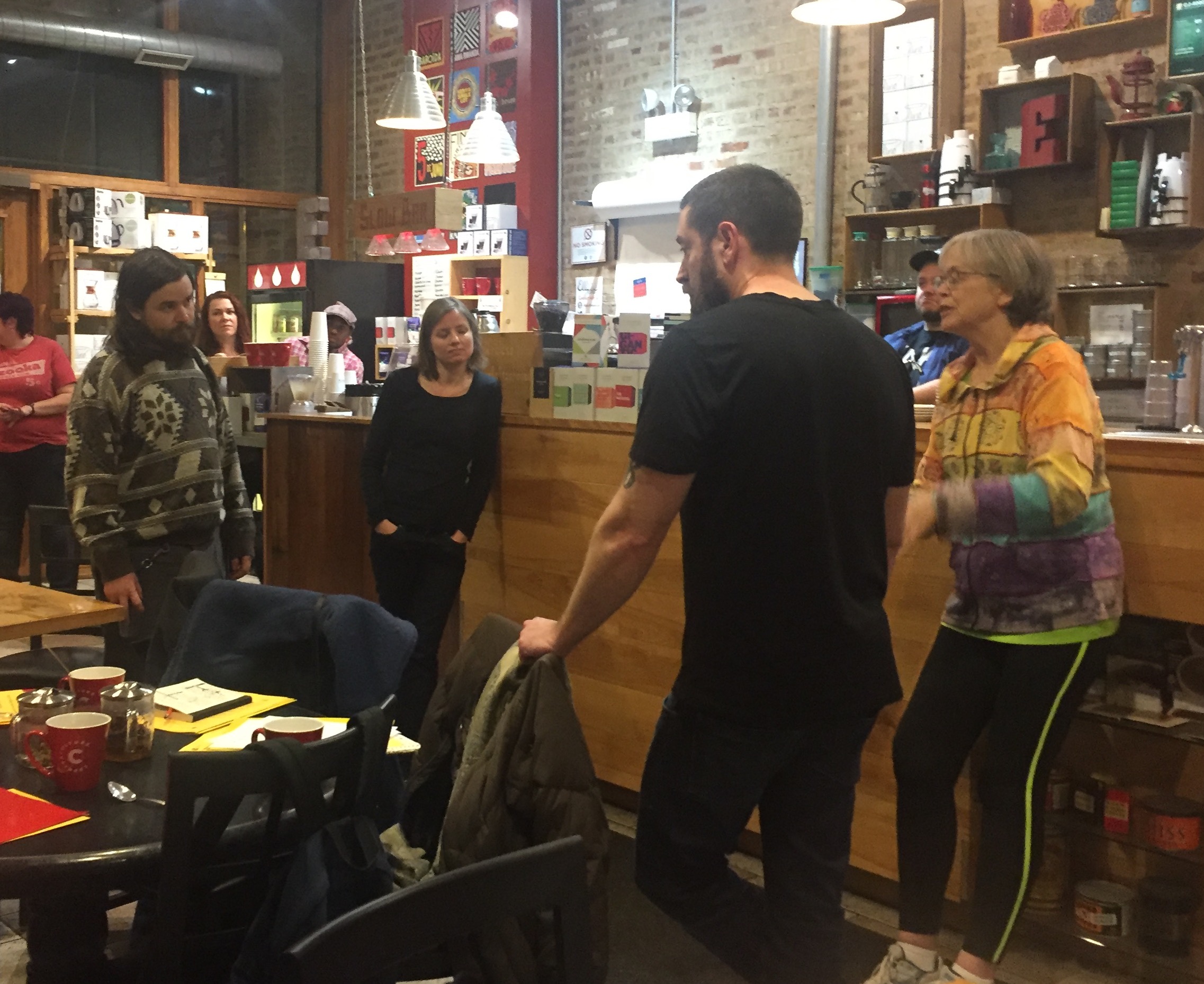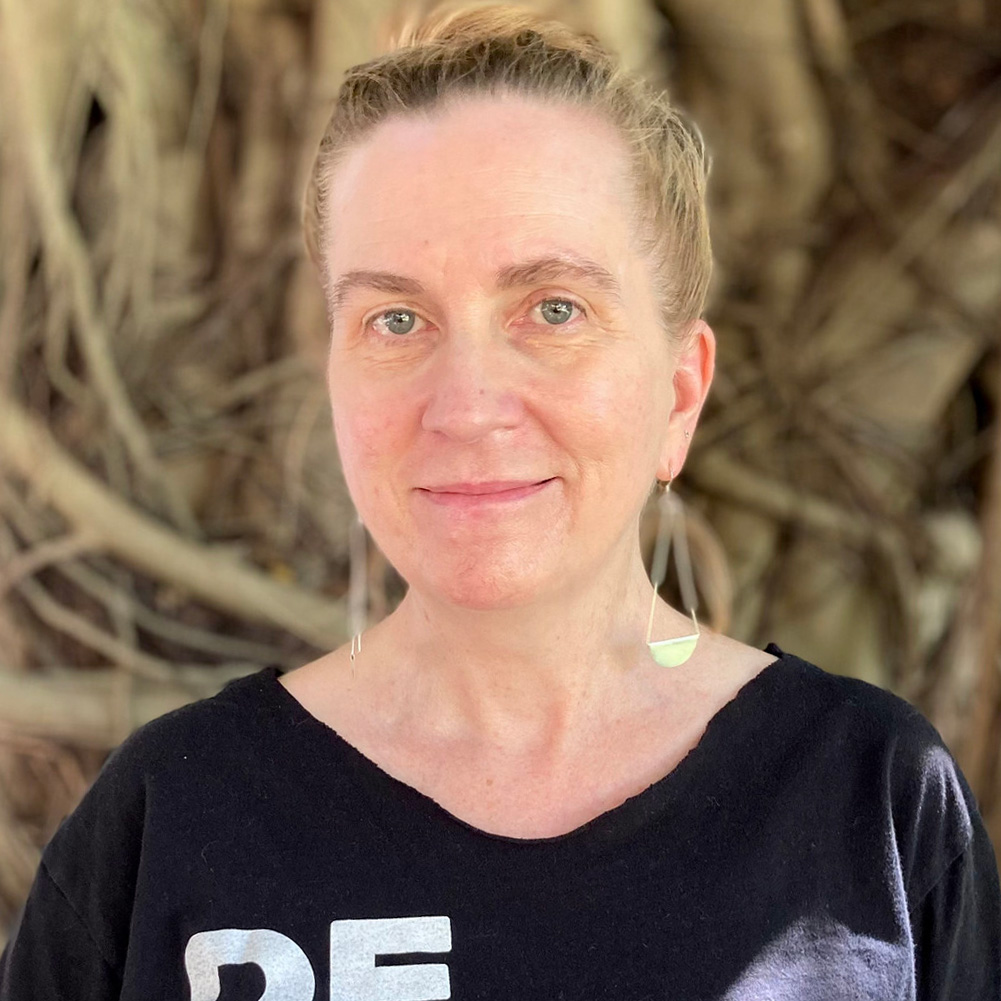
Participants do some role-playing at a recent Communities Against Islamophobia workshop in Chicago. Mary Zerkel / AFSC
Here are six tips to effectively counteract anti-Muslim rhetoric in your conversations.
AFSC’s Communities Against Islamophobia project trains people to recognize anti-Muslim racism and develop strategies to stop it. In our workshops, attendees pair up and practice ways to refute anti-Muslim rhetoric when talking with friends, family, or the media. We do this because we think it’s important for allies to do the hard work of engaging with people who hold anti-Muslim views.
If an Islamophobic joke or statement comes up when you're talking with family, friends, or acquaintances at a dinner party, it’s definitely easier to switch the topic to kids or pets—but preparing ahead of time can help you feel ready to engage in meaningful conversation that could change someone’s mind.
Let’s imagine that a dinner conversation turns to the Muslim ban and someone sitting around your holiday table says: “It’s about time America does something to protect us all from terrorists.” What do you say in reply?
There are a few traps that can sink your response, and most of us have probably fallen into them because they come somewhat naturally. It takes some skill to avoid these pitfalls—and some practice to be able to tell a new story to counteract anti-Muslim racism.
These tips can help:
Avoid getting stuck
Try to reply to them outside of the premise of their statement, framing, or language. If your only comeback to “All Muslims are terrorists” is “No they aren’t,” you won’t get far, because you’re trapped within their racist assertion with nowhere to go.
Ask questions
Instead of coming right back with a counter-argument, asking questions can give you a chance to think, and also give the person making the statement a chance to really consider what they’re saying.
One of our workshop participants—a canvasser in the last election—said this tactic slows things down so that two people with opposing views can have a real conversation. For instance, you can say, “Can you explain why you think that?”
Avoid personal attacks
Depending on your personality, this is either easy for you or hard. Either way, calling out the speaker might feel great in the moment, but it won’t change the mind of the speaker, or of the other people in the room. One of our co-trainers likes to remind people that they are planting seeds of thought for everyone within earshot.
Use key words
One clever way to move the conversation beyond an anti-Muslim statement is to focus on a key word in the statement and shift the meaning in your response. I like this tip because it’s easy to remember in the moment.
So your holiday dinner guest says: “It’s about time America does something to protect us all from terrorists.” In response, you can say, “I totally agree, we should protect people from terror, like those who are fleeing violence and war.” See, you’ve shifted the meaning of who needs protection and what the terror is.
Avoid mythbusting
This one is the hardest for me, because I believe that facts can win! Sadly, study after study has found that facts alone do nothing to persuade, and this will only get you in an unsatisfying and unproductive back and forth.
Contrast with shared values
Tell a story about what the world would look like if values that you and the listener share were shaping the world. AFSC has done some research, and there are a few key messages that help move an audience to action against profiling and surveillance of the Muslim community.
We’ve found that the value-based frame that appeals to the broadest audience is: “Everyone deserves to live and pray in safety and peace.”
Countering Islamophobia in conversations in our everyday lives—especially in social settings—may seem difficult. When we practice these skills in our workshops, everyone talks about how it makes them anxious, how they have to be very focused, and just how hard it is.
But during a training, one of our facilitators, Sofia , who is Muslim, reminded us: “It’s not hard, I have to do this every day. I’ve been doing this since I was 12 years old.”
Those of us who aren’t targeted by anti-Muslim racism have not had to develop these skills, but let’s challenge ourselves to do so, even when it isn’t convenient. It’s an important step in standing up to racism and working for the future we want to see.
